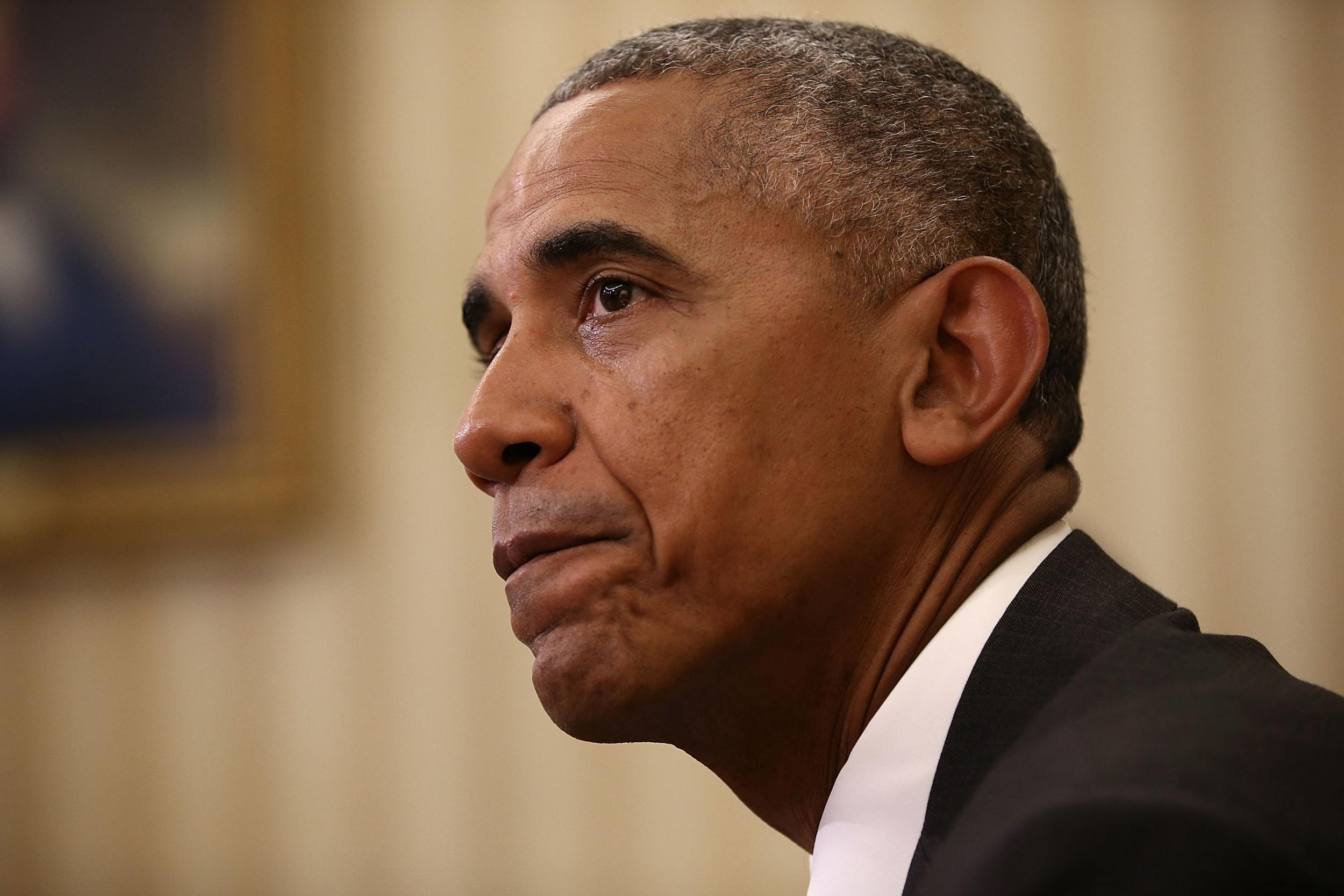Yes, Barack Obama was the first black president – but he didn't improve the lives of black Americans
With vigilantes and law enforcement killing black people across the United States, communities and campaigners on the ground stood up loudest. In support of that movement the president said little that would rock the boat and even less was done

Eight years ago I was sat in a secondary school classroom the morning after the US presidential election. It was a GCSE English lesson and, in a moment of rare acknowledgement for the real world, we were given a warm up activity to describe in one sentence what we thought about the election of America’s first black president. I wish I still had the exercise book where my fifteen-year-old self expressed biting cynicism and pointed out that judgement should be reserved for what Obama would actually do. I wish I still had the evidence only because it would be useful to take in the irony that I am far less justified in the disappointment I feel now having pre-empted it in typical teenage style.
Today it already seems trite to point out where Obama offered so much hope and promise, yet failed to deliver so spectacularly. Before even being conscious that you’re about to make that suggestion, someone invariably reminds you that it’s all the fault of Republican efforts to block and impede him at every turn. It’s true. We need think no further than the many times Republicans held the federal government to ransom by refusing to raise the debt ceiling if they weren’t bowed to.
But Obama didn’t run on the promise that it would be easy to change America. His was a campaign that emphasised how deeply rooted that nation’s problems are, accepted their difficulty and yet crucially broke the consensus that nothing could be done by saying “Yes We Can”. His 2008 run for the presidency suggested that by investing hope in him, there was hope for America.

Three years before Obama’s election the disastrous impact of Hurricane Katrina had wrecked so many lives. The government’s response – betrayed by its own racial and class interests – was itself a catastrophe. This context of George Bush’s government having left black and other poor people so obviously helpless would see America go on to elect its first black president. Undisputedly the promise of Obama was wrapped up in the significance of his racial background and the possibility of a US leader from one of the nation’s most hard done by communities.
For this reason race will be a measure by which we judge Obama’s time in office and on that basis opinions are likely to be mixed.
In some sense the president became just another black celebrity for white consumption. Either out and out racists demanded his birth certificate to question why he dared to speak in American public life at all and prove he was ineligible to be president or we heard endlessly about his charm, charisma and sense of cool. Obama’s blackness, whether hated or not, was in fashion.
What about his actual policies touching on race? The unemployment figures for Black Americans remains double that of their white counterparts at over 8 per cent, so while unemployment dropped since the recession for all, nothing was done to close the gap between different racial groups. Somehow, despite its centrality to the financial collapse, Obama’s administration had little in the way of housing policy. When the foreclosure crisis hit it was Black and Latin American communities who were hit hardest. Not only losing their homes, but the wealth tied up in them.
But perhaps most telling is that it was during the Obama-era that a nationwide movement of protest had to erupt in defence of Black lives. With vigilantes and law enforcement killing black people across the United States, communities and campaigners on the ground stood up loudest. In support of that movement the president said little that would rock the boat and even less was done. Obama chose not to lead as a Black president except where he showed great confidence in admonishing his own community with calls to take self-responsibility.
I remember news footage of Jesse Jackson crying when Barack Obama was elected president. It looked as though the civil rights movement that he had fought in was coming to an end with that election victory. As Obama’s successor is announced it looks as though his term confirmed the need for another movement to succeed Jackson’s.
Join our commenting forum
Join thought-provoking conversations, follow other Independent readers and see their replies
Comments
Bookmark popover
Removed from bookmarks